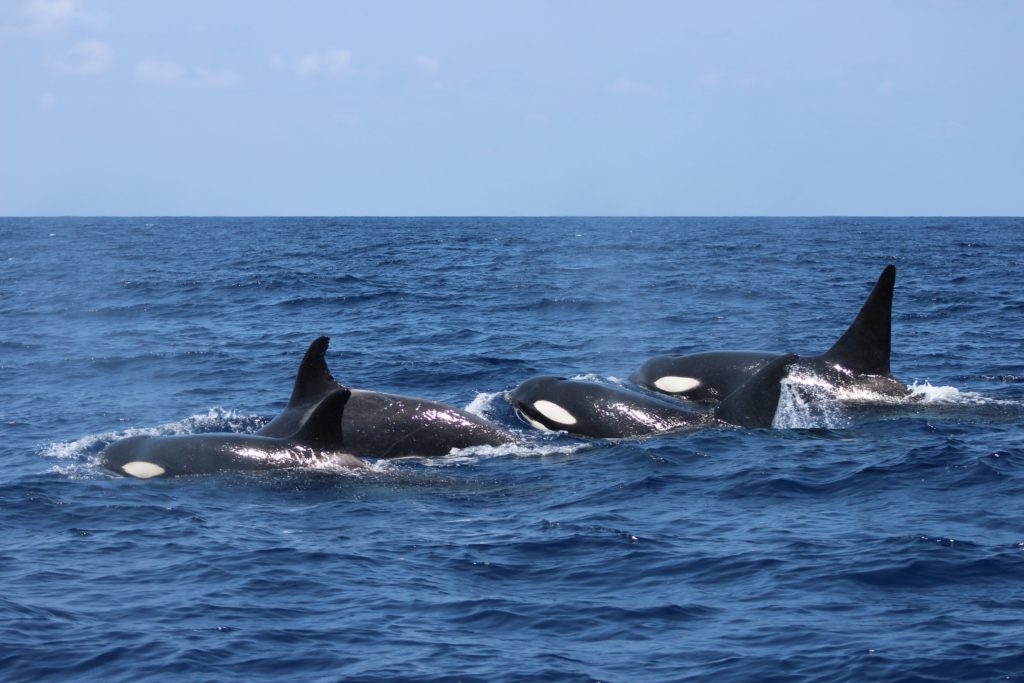PhD study on the ecology of tropical killer whales in the Southwest Indian Ocean
Killer whales (Orcinus orca) are large apex predators which are distributed globally. They are mostly studied in high latitudes due to their coastal habitat and high site fidelity but are opportunistically observed in tropical regions as well. In the Southwest Indian Ocean, this species is mostly encountered offshore but was also reported to visit coastal waters and predate on a variety of taxa, suggesting its presence might have an impact on local prey populations.
To increase our understanding on the ecology of tropical killer whales in the Southwest Indian Ocean, Maeva Terrapon, a PhD candidate supervised by Prof Sascha Hooker and Prof Philip Hammond at the University of St Andrews in Scotland, has started investigating killer whale distribution, movements, and foraging behaviour at a regional scale in collaboration with several local organisations. As part of this, she aims to explore the overall presence of this species in time and space by passive acoustic monitoring throughout the entire region, and to assess the size and connectivity of the population using photo-identification methods. Additionally, she will investigate killer whale predation pressure on the regional humpback whale (Megaptera novaeangliae) population by estimating the proportion of adult humpback whales that survive killer whale attacks, identifiable by the presence of rake makes on their flukes and elsewhere.
Given the logistical challenges of studying killer whales in the field (few opportunistic sightings, widespread distribution, offshore occurrence), most sightings and photo-identification data will rely on citizen science reports. A project website will soon be available to report any past and future sightings and associated photographs of this charismatic species. Meanwhile, if you want more information on this project, are interested in a future collaboration or if you were lucky to encounter killer whales in the Southwest Indian Ocean (Tanzania, Kenya, Mozambique, Seychelles, Comoros Archipelago, Madagascar, Mascarene Islands, eastern South Africa, and any offshore territories) and are willing to share your sighting and/or photographs to contribute to this project, please email Maeva (mt208@st-andrews.ac.uk). Results of this work will be shared with the IndoCet community when they will become available.
Contributors: Maeva Terrapon
